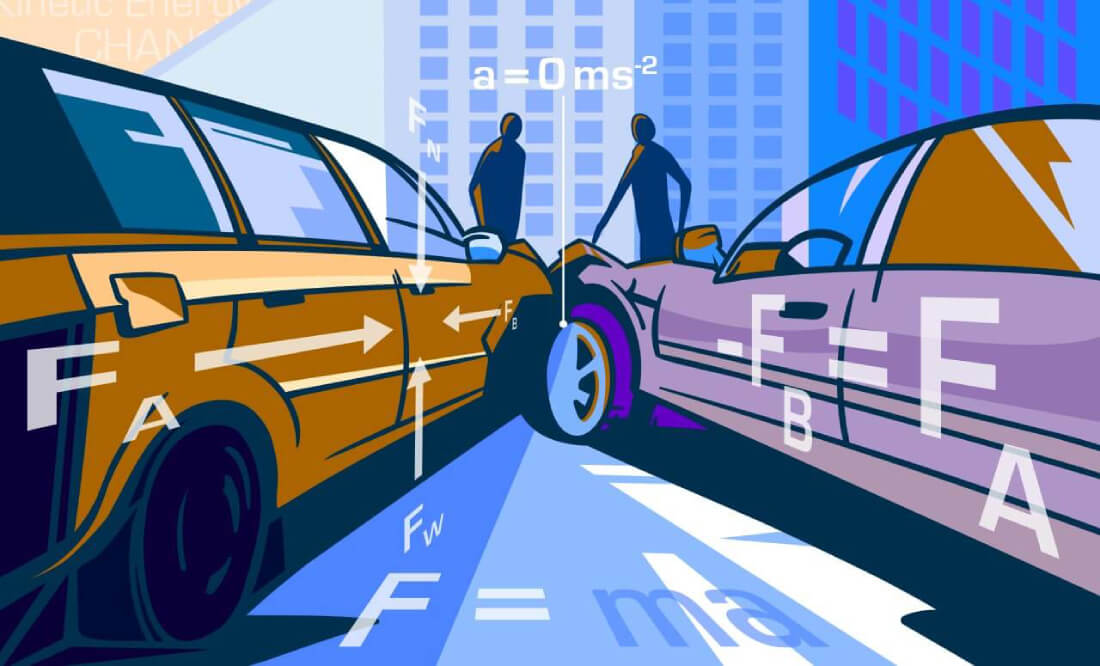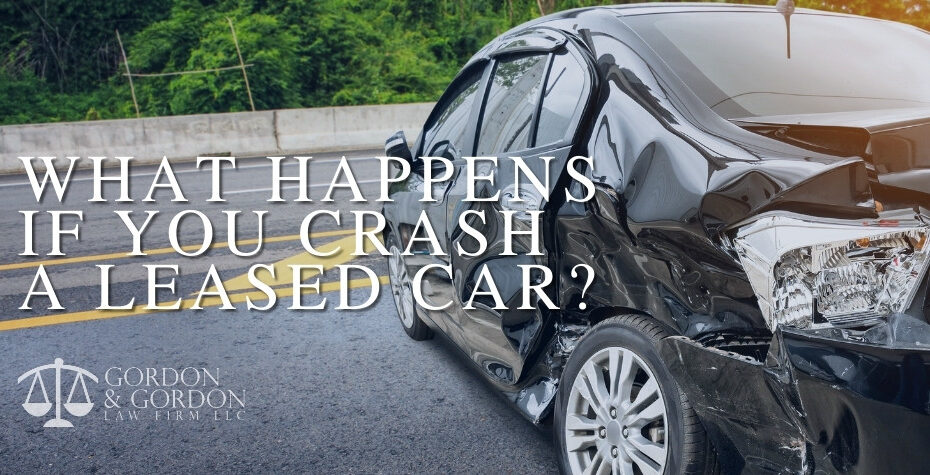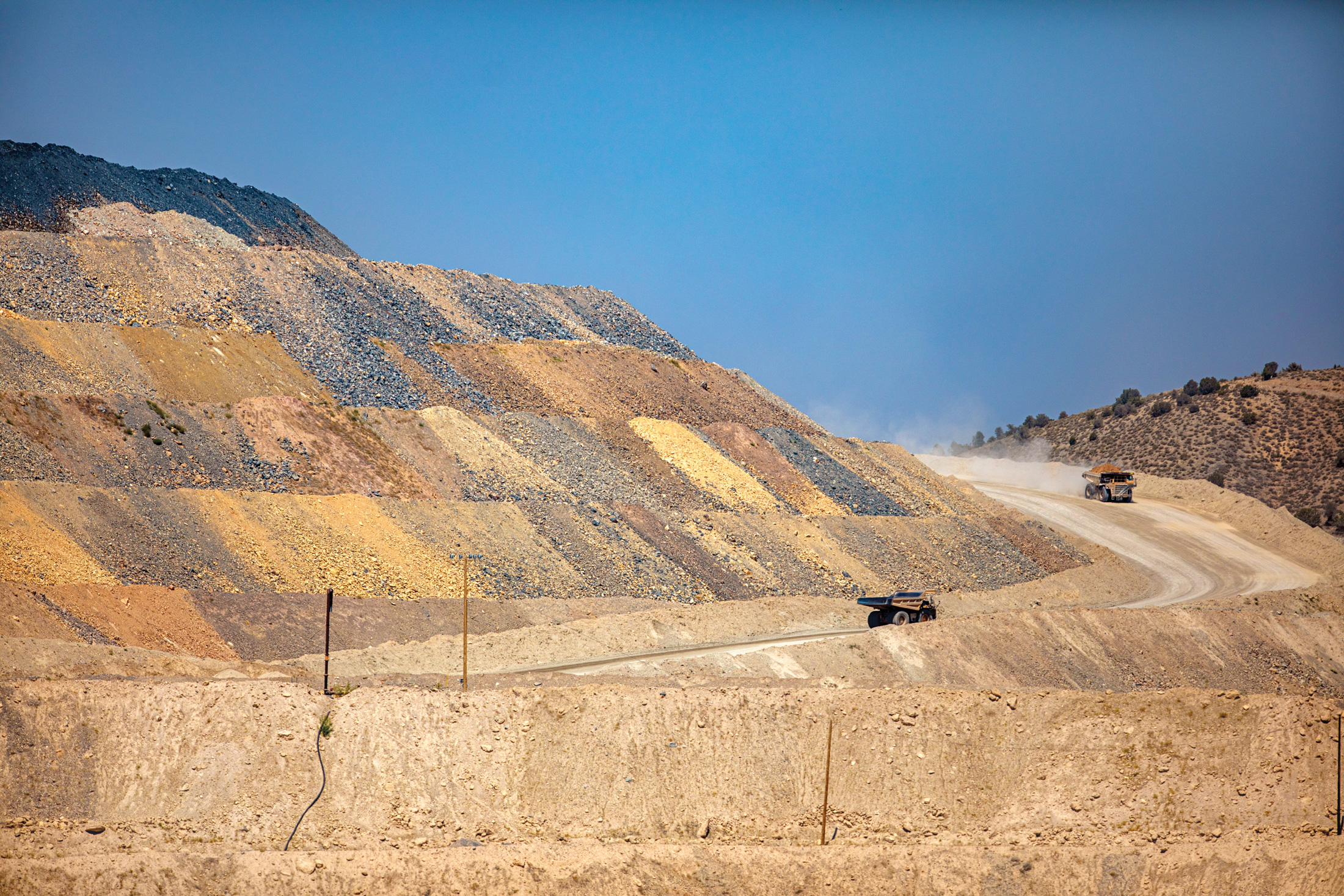If you get in an accident with a leased car, your lease terms remain unchanged and you are still responsible for paying the vehicle’s actual value to the leasing company, while your insurance provider may cover the repairs. However, damaging someone else’s property, like a leased car, can be a nightmare since you may have to deal with the repercussions.
It is important for drivers to understand their obligations when it comes to accidents involving leased cars and to have proper insurance coverage to protect themselves financially. We will explore what happens when you are involved in an accident with a leased car and discuss the steps you should take to navigate through this situation smoothly.
Understanding The Consequences
If you get into an accident with a leased car, your lease terms remain unchanged. You still have to pay the leasing company for the car’s actual value, but your insurance provider will likely cover the repair costs.
How Does An Accident Affect A Leased Car?
When it comes to accidents involving a leased car, it’s crucial to understand the consequences. Despite being involved in an accident, your lease terms and payment responsibilities do not change. You are still obligated to pay the leasing company for the vehicle’s actual value.
However, the good news is that your insurance provider will likely cover the cost of repairs. They will assess the damage and determine the necessary repairs based on the terms of your insurance policy. This means that you won’t have to bear the financial burden of the repairs on your own.
Lease Terms And Payment Responsibilities
Lease terms vary depending on the lease agreement you have with the leasing company. In the event of an accident, these terms remain unchanged. You are still responsible for making monthly lease payments as agreed upon in the initial contract.
It’s important to note that if your leased car is deemed a total loss after an accident, you may still owe the remaining balance on the lease agreement. This means that even if you can no longer drive the car due to severe damages, you are still obligated to pay the leasing company.
Insurance Coverage For Leased Cars
Insuring a leased car is a requirement imposed by the leasing company. When you lease a car, you need to have proper insurance coverage to protect both the vehicle and yourself in the event of an accident.
Typically, the leasing company will require collision and comprehensive insurance coverage for the duration of the lease term. Collision insurance covers damages to the vehicle resulting from a collision, while comprehensive insurance provides coverage for non-collision-related damages, such as theft or vandalism.
It’s essential to review your insurance policy and understand the coverage limits and deductibles. This will help you determine the extent of coverage and financial responsibilities in case of an accident.
In conclusion, getting into an accident with a leased car can have implications on your lease terms and payment responsibilities. While the lease terms remain unchanged, your insurance provider will generally cover the cost of repairs. It’s vital to have the necessary insurance coverage to protect yourself and fulfill your lease obligations in the event of an accident.

Credit: www.1800law1010.com
What Happens To The Leased Car?
What Happens to the Leased Car?
Assessing The Damage
When you’re involved in an accident with a leased car, the first step is to assess the damage. This includes examining the extent of the physical damage to the vehicle and determining the cost of repairs. It’s important to document the damage thoroughly, taking pictures and gathering any relevant information such as police reports or witness statements.
Repairing The Vehicle
Once the damage has been assessed, the next step is to repair the vehicle. Depending on the severity of the damage, this may involve minor repairs or significant repairs that require the expertise of a professional mechanic. It’s crucial to ensure that the repairs are done properly and in accordance with the leasing company’s guidelines to avoid any penalties or additional charges.
Returning The Leased Car
After the vehicle has been repaired, it’s time to return the leased car. However, before returning it, it’s essential to make sure that all repairs have been completed and the car is in good condition. This includes fixing any dents, scratches, or other damage that occurred as a result of the accident. If the damage is beyond repair, it’s important to inform the leasing company and follow their instructions regarding the return of the vehicle.
In conclusion, when you get in an accident with a leased car, it’s important to assess the damage, repair the vehicle properly, and ensure that the leased car is returned in good condition. By following these steps, you can navigate the process smoothly and avoid any potential issues with the leasing company.
Financial Implications
If you get in an accident with a leased car, your lease terms remain unchanged. You still have to pay the leasing company for the car’s actual value, but your insurance should cover the repairs.
Getting into an accident with a leased car can have various financial implications that you need to be aware of. From remaining lease payments to insurance claims and payouts, understanding these factors can help you navigate through the situation more effectively. Let’s explore each of these aspects in detail:
Remaining Lease Payments
When it comes to remaining lease payments, unfortunately, you are still obligated to fulfill the terms of your lease agreement, even if your leased car is involved in an accident. This means that you will continue to make monthly payments to the leasing company until the end of the lease term, regardless of the damage caused by the accident. It’s important to note that the leasing company can enforce the contract and require you to pay the remaining balance owed, even if the car is deemed a total loss. Therefore, it’s crucial to assess the financial implications before deciding on your next steps.
Insurance Claims And Payouts
When you have an accident with a leased car, the good news is that your insurance provider will likely cover the repairs or replacement costs, depending on the extent of the damage. However, it’s important to understand that the insurance claim process may vary, and you should report the accident to your insurance company as soon as possible. The insurance company will investigate the accident and determine who was responsible for the crash. Once the valuation is completed, the insurance company will pay the leasing company the car’s actual cash value, minus any deductible amount specified in your insurance policy.
Obligation To Pay For Damages
In addition to the remaining lease payments, you may also be responsible for paying for damages that are not covered by your insurance policy. This could include charges for excessive wear and tear, dents, scratches, or any other damage that exceeds the normal wear and tear guidelines specified in your lease agreement. It’s crucial to thoroughly review your lease contract and understand your obligations regarding damage repairs. Returning the leased car with significant damages may result in additional charges that could impact your overall financial situation.
In conclusion, if you find yourself in an accident with a leased car, it’s important to be aware of the financial implications involved. You will still be responsible for the remaining lease payments, and your insurance claim will determine the coverage for repairs or replacement costs. Additionally, you may be obligated to pay for damages that exceed normal wear and tear. Being well-informed about these aspects can help you make informed decisions and minimize the potential financial impact.
Legal Considerations
If you get in an accident with a leased car, your lease terms remain the same. You still have to pay the leasing company for the car’s actual value, but your insurance provider will likely cover the repairs.
Getting into an accident with a leased car can be a stressful situation, both emotionally and financially. One of the most important aspects to consider when dealing with an accident involving a leased car are the legal considerations. This includes understanding the procedures to follow when dealing with law enforcement, potential legal actions that may arise, and how to recover damages. Let’s explore each of these legal considerations in detail.
Dealing With Law Enforcement
When you find yourself in an accident with a leased car, it is crucial to know how to handle the situation with law enforcement. Remember these important steps:
- Immediately contact the police to report the accident and provide accurate details of the incident.
- Cooperate fully with law enforcement officers and provide them with any necessary documents, such as your driver’s license, registration, and proof of insurance.
- Obtain a copy of the police report and keep it for your records. This report will serve as valuable evidence for any potential legal actions or insurance claims.
Potential Legal Actions
After an accident with a leased car, there may be potential legal actions that can arise. It’s crucial to understand these actions and how to navigate through them:
- Insurance Claims: Contact your insurance provider as soon as possible to report the accident. They will guide you through the claims process and assess the damages.
- Legal Liability: If the accident was caused by the negligence of another party, you may have the right to pursue a legal claim for compensation. Consult with a personal injury attorney to understand your rights and options.
- Contractual Obligations: Review your lease agreement and understand your contractual obligations regarding accidents. You may be responsible for any damages not covered by insurance.
Recovering Damages
Recovering damages after an accident with a leased car is essential to ensure you are not financially burdened. Consider the following steps:
- Notify the leasing company about the accident and provide them with all the necessary information.
- Coordinate with your insurance provider to get the vehicle repaired. They will cover the repairs, but you may be responsible for deductibles or other out-of-pocket expenses.
- If there are any damages not covered by insurance, negotiate with the leasing company to determine the best course of action.
Remember, it’s crucial to document all communication and keep copies of relevant documents throughout the process to protect your rights and ensure a smooth resolution.
Steps To Take After An Accident
What happens if you get in an accident with a leased car? Your lease terms remain unchanged, but you will still need to pay the leasing company for the vehicle’s value. However, your insurance provider will likely cover the cost of repairs.
Contacting Law Enforcement
After getting into an accident with a leased car, the first step you should take is to contact law enforcement. It is crucial to report the accident to the police, even if it seems like a minor incident. Not only can this help establish a legal record of the accident, but it can also aid in determining fault and liability. By contacting the authorities, you ensure that a formal accident report is filed, which can be invaluable when dealing with insurance companies and potential legal proceedings.Documenting The Accident
Next, it’s essential to document the accident thoroughly. Take as many photos as possible of the scene, including any damages to your leased car and the other vehicle(s) involved. Additionally, gather the contact information of all parties involved, including names, phone numbers, addresses, and insurance details. If there are any witnesses, try to obtain their contact information as well. Taking detailed notes about the accident, such as the time, date, location, and weather conditions, can also be beneficial in the future.Contacting Insurance Companies
Once you have informed law enforcement and collected all necessary documentation, it’s time to contact your insurance company. Reach out to your insurance provider as soon as possible to report the accident and start the claims process. Be prepared to provide all the details you have gathered, including the accident report filed by law enforcement. Remember, timely communication with your insurance company is crucial to ensure a smooth and efficient claims process. Keep in mind that if you are leasing the car, you will need to notify both your personal insurance and the leasing company’s insurance. In conclusion, if you find yourself in an accident with a leased car, it is essential to follow these steps promptly: contact law enforcement, document the accident thoroughly, and reach out to your insurance company. By taking these actions, you can ensure that the necessary processes are set in motion to protect your interests and resolve the situation smoothly.:max_bytes(150000):strip_icc()/what-happens-when-you-buy-too-much-car.aspx-final-2d09842fa68a4ddba2baa0c5065fa4ab.png)
Credit: www.investopedia.com
:max_bytes(150000):strip_icc()/when-leasing-car-better-buying-v1-735d3e7993d0435c8e1dcc0831af07bc.png)
Credit: www.investopedia.com
Frequently Asked Questions For What Happens If You Get In An Accident With A Leased Car
Is It Bad To Crash A Leased Car?
Crashing a leased car does not change the lease terms. You still have to pay the leasing company for the car’s value, but your insurance will likely cover the repairs.
Does Leasing A Car Cover Damage?
Leasing a car does not cover damage. If you are involved in an accident, you still need to pay the leasing company for the actual value of the vehicle. However, your insurance provider may cover the cost of repairs.
What Happens If You Ding A Leased Car?
If you ding a leased car, you may need to get it repaired depending on the size of the dent and any paint damage. Cracked or chipped glass should also be fixed before returning the car. Your lease terms remain the same, but you’ll still have to pay the leasing company for the car’s value.
What Happens If A Leased Car Is Totaled In Texas?
In Texas, if a leased car is totaled in an accident, you are still responsible for the lease payments as per the lease agreement. The leasing company can enforce the contract and require you to pay the remaining balance owed on the agreement, even if the car is totaled.
Conclusion
In the unfortunate event of an accident with a leased car, it’s important to understand the implications. Your lease terms remain unchanged, meaning you’re still responsible for paying the leasing company the vehicle’s actual value. However, the good news is that your insurance provider will typically cover the cost of repairs.
It’s crucial to coordinate repairs with your insurance company and the leasing company to ensure a smooth process. Remember, damaging property that isn’t yours can be a nightmare, so be sure to take necessary precautions.
- How Much Does a Ford 9N Tractor Weigh - May 20, 2024
- How Many of My Exact Car were Made: Uncovering the Rarity - May 20, 2024
- How to Find Out What Someone Drives: Discover the Truth - May 20, 2024


